Is Processed Meat Bad? How To Safely Serve Lunch & Deli Meat To Kids
Aug 17, 2022, Updated Dec 12, 2024
This post contains affiliate links. Please see our disclosure policy.
Deli meat, lunch meat, processed meat. Whatever you call it, if you’ve heard that processed meat is bad for you, you probably have tons of questions. All of a sudden, instead of, “Shaved or sliced?” you’re like, “Wait, is this safe to feed my child?!”
I never want you to be afraid of food or feel like you need to blindly follow advice you’ve heard through the grapevine, so my goal is to clear those questions up way up in this post. Because yes, it’s true that processed meat isn’t something you want to rely on every day. But no, that doesn’t mean you have to be terrified of it or never serve it again!
Today, we’re answering your biggest FAQs about processed meat, like:
- Is deli meat bad for kids?
- Should I worry about the sodium content?
- How much lunch meat is safe for kids?
- Does organic or nitrate-free meat make a difference?
- What can I serve my kids instead?
We’re gonna get you to that middle ground where you understand the reasons behind the recommendation to limit processed meat…but you also feel empowered to decide if, when, and where you want to include it in your child’s diet!
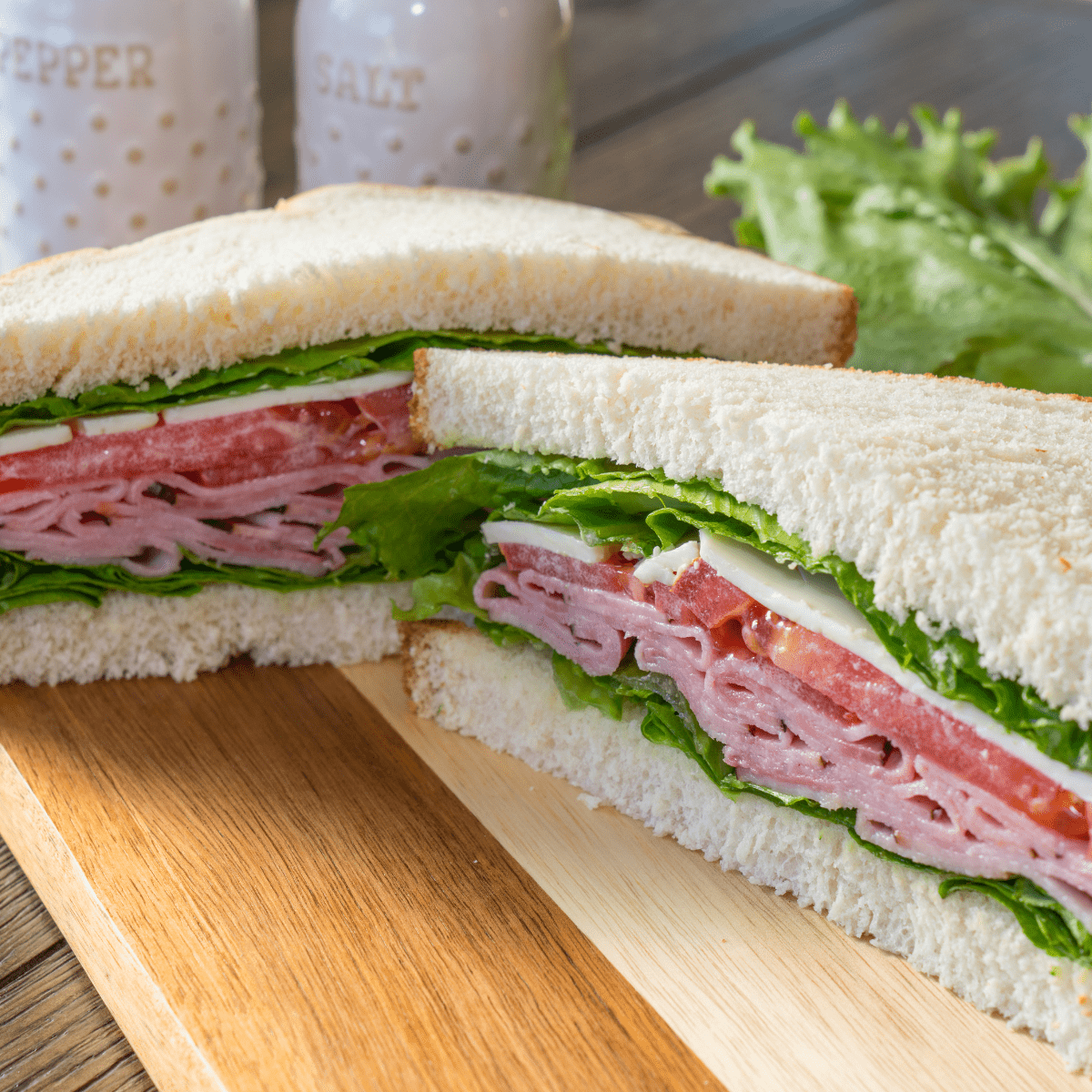
Is Deli Meat Bad For Kids?
So first thing’s first: Is processed meat really that bad? And is it a “never” thing or a sometimes thing? Let’s get into it.
What Is A Processed Meat?
Deli and lunch meats all part of a larger category of meats called processed meats. The World Health Organization defines a processed meat as “one that has been transformed through salting, curing, fermentation, smoking, or other processes to enhance flavour or improve preservation.”
Examples of Processed Meats
Processed meats typically include beef or pork, but can include other meat products like red meat, poultry, or meat by-products, too. Some examples of processed meats include:
- Hot dogs
- Sausage
- Bacon
- Pepperoni
- Deli meat

Processed Meats & Health
If you’ve been following me for a while, you know that I’m the last person to make big, scary claims about foods being inherently bad for you. I’m a big believer that all foods can fit into a healthy diet, and I’m not about to scare you into or out of serving your kids certain foods. So it might surprise you to hear me say that deli meats are one of the only foods I do recommend limiting for health reasons.
Why? Well, because processed meat is a known carcinogen. That means when you consume it regularly, it can increase your risk of chronic diseases, including cancer and, specifically, colorectal cancer. BUT—and this is a big but!—that does not mean eating processed meat occasionally WILL give you or your kids cancer.
There’s some nuance here and that’s why I’m writing up a whole blog post about processed meat—to give you all the information instead of just the click-worthy headlines!
What’s The Risk Of Serving Processed Meat?
According to the most recent estimates by the Global Burden of Disease Project, an independent academic research organization, about 34,000 cancer deaths per year worldwide are attributable to diets high in processed meat. This is compared to about 1 million cancer deaths caused by smoking tobacco. That means the number of cancer deaths we estimate are caused by diets high in processed meat is only about 3% of the deaths related to cancer caused by smoking.
So is processed meat THE biggest risk out there? No. Absolutely not. But still, I don’t want you or your children to be part of that statistic. I just want you to understand the relative risk compared to smoking so you can see it in a bigger context.
And just to be 100% clear, the World Health Organization explicitly states that processed meat is NOT as dangerous as smoking! This is what they say on their website, word-for-word:
“Processed meat has been classified in the same category as causes of cancer such as tobacco smoking and asbestos (IARC Group 1, carcinogenic to humans), but this does NOT mean that they are all equally dangerous. The IARC classifications describe the strength of the scientific evidence about an agent being a cause of cancer, rather than assessing the level of risk.”
Basically, what they’re saying there is that we have the same amount of research and evidence to prove that processed meats and tobacco can both cause cancer. But that doesn’t mean they both carry the same risk of giving you cancer.
Why Is Processed Meat Bad For You?
Okay, so you know that processed meat isn’t the best for you. But why? Is it the nitrates? The salt? What is it? To be honest, we’re not 100% sure yet. Scientists believe the nitrates are part of it, but we know they’re not necessarily the whole picture.
Nitrates
Research tells us that even processed meats labeled nitrate-free aren’t necessarily better for you. Even in nitrate-free meats, there are still naturally-occurring nitrates. When consumed, your body can turn these into nitrites, which can be harmful to you. Smoked meats and those with a lot of charring or burnt pieces on them also contain Polycyclic Aromatic Hydrocarbons, which are cancer-causing agents. Uncured and organic products don’t escape the potential harm, either.
So as much as I’d love to tell you just choose nitrate-free or organic and go ham—just a little meat humor to lighten the mood!—the answer to the processed meat dilemma just isn’t that simple.

Sodium
We don’t have any good research to suggest that we need to be afraid of sodium, unless there’s a pre-existing medical condition that requires low sodium. As long as fast food and highly processed frozen or packaged meals high in sodium, calories, and saturated fat and low fiber are limited to once a week or less, you and your children will be just fine!
So as long as most of your meals are made at home and you only serve processed foods sometimes, you don’t need to worry. It would be really hard to even come close to a sodium intake level that any dietitian or professional would consider problematic.
But, if high-sodium, high-saturated fat, low-fiber, high-calorie meals are a regular everyday thing (versus just serving some high-sodium foods sometimes), you may want to start paying attention to sodium levels.

How Much Processed Meat Is Safe To Eat?
Research isn’t able to determine an exact amount right now. While the World Health Organization explains that your risk of developing a chronic disease like cancer increases with the amount of processed meat consumed, they also say the data “did not permit a conclusion about whether a safe level exists.” So, especially for kids, we don’t have one specific answer. Personally, I would recommend limiting processed meats to one serving or less per day. And ideally, you would serve processed meats less than 3-4 times a week.
One serving of processed meat is approximately:
- 2 slices of bacon
- 1 to 2 oz sausage
- 1 regular-sized hot dog (not the foot-long)
- 1 or 2 oz of deli meat (a few slices, depending on how thick it’s sliced)
What Are The Best Alternatives To Deli Meat?
Okay, so it’s pretty clear that we want to avoid serving deli meat every single day, and more than once a day. But if you’re in the habit of bacon and eggs for breakfast, a ham sandwich for lunch, and the occasional hot dog and mac and cheese or chicken sausage dinner, that might feel a little daunting!
Here are some great alternatives to deli meat when it comes to packing lunches and making sandwiches:
#1 Chicken Breast
I like to bake, grill, or roast chicken breasts, then thinly slice them for sandwiches. You can even buy pre-made chicken breasks from many stores, in the prepared foods section. (Not the deli meat chicken breast, but actual cooked chicken breasts!)

#2 Hard-Boiled Eggs
Need a deli meat alternative? Why not egg salad? I love that eggs still have lots of protein and so many other vitamins and minerals while being a vegetarian option.
Related: Eggs for Toddlers

#3 Canned Fish
I like Safe Catch brand canned tuna because it’s low in mercury and safe for toddlers. You can also opt for canned salmon. (You can even get some without bones or any of that stuff in it, if it’s not your jam!)
Related: Seafood For Toddlers
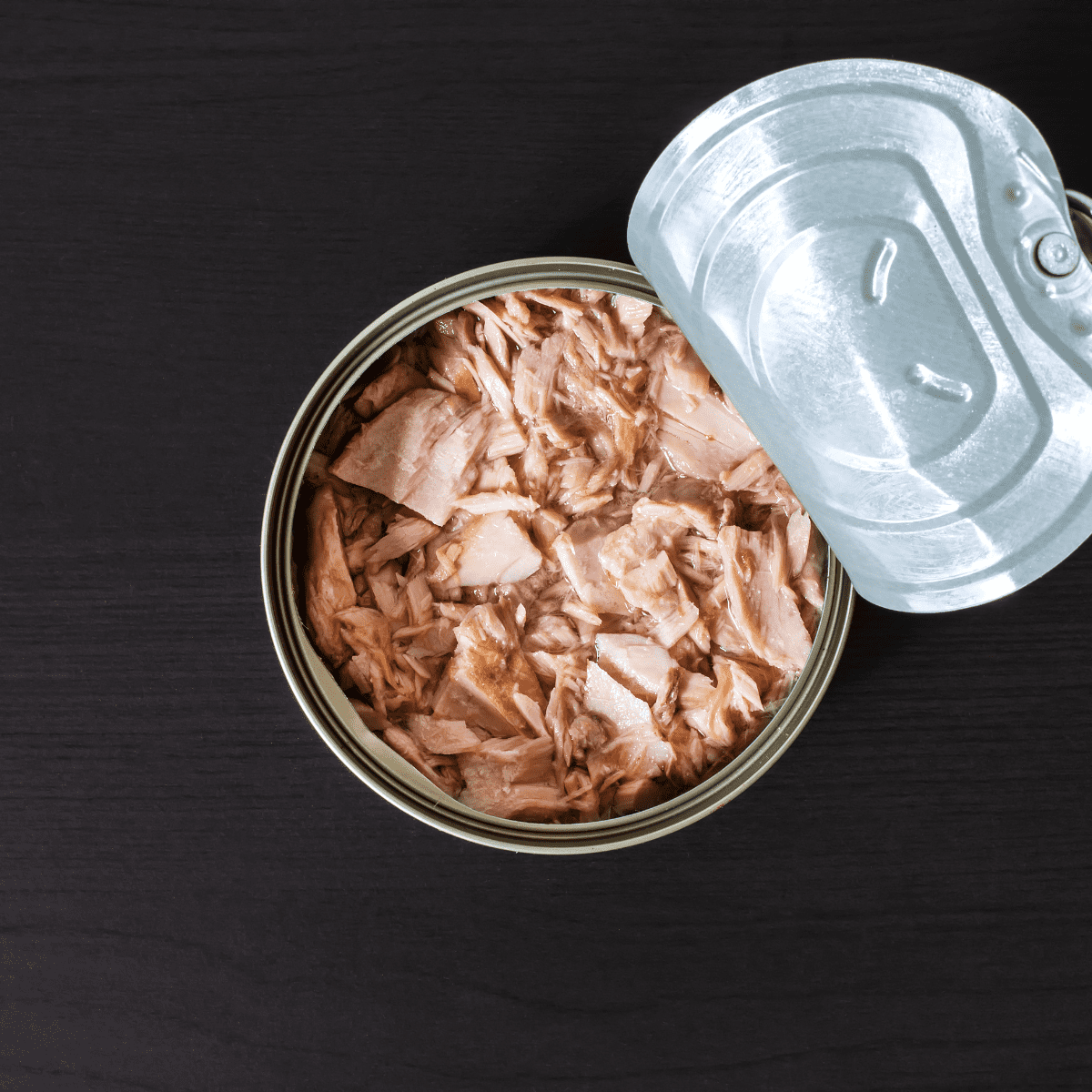
#4 Roasted Turkey
Just like with chicken breast, some grocery stores, like Whole Foods, have an in-house roasted turkey breast that is basically the same as you roasting a turkey at home. Alternatively, you can roast your own at home!
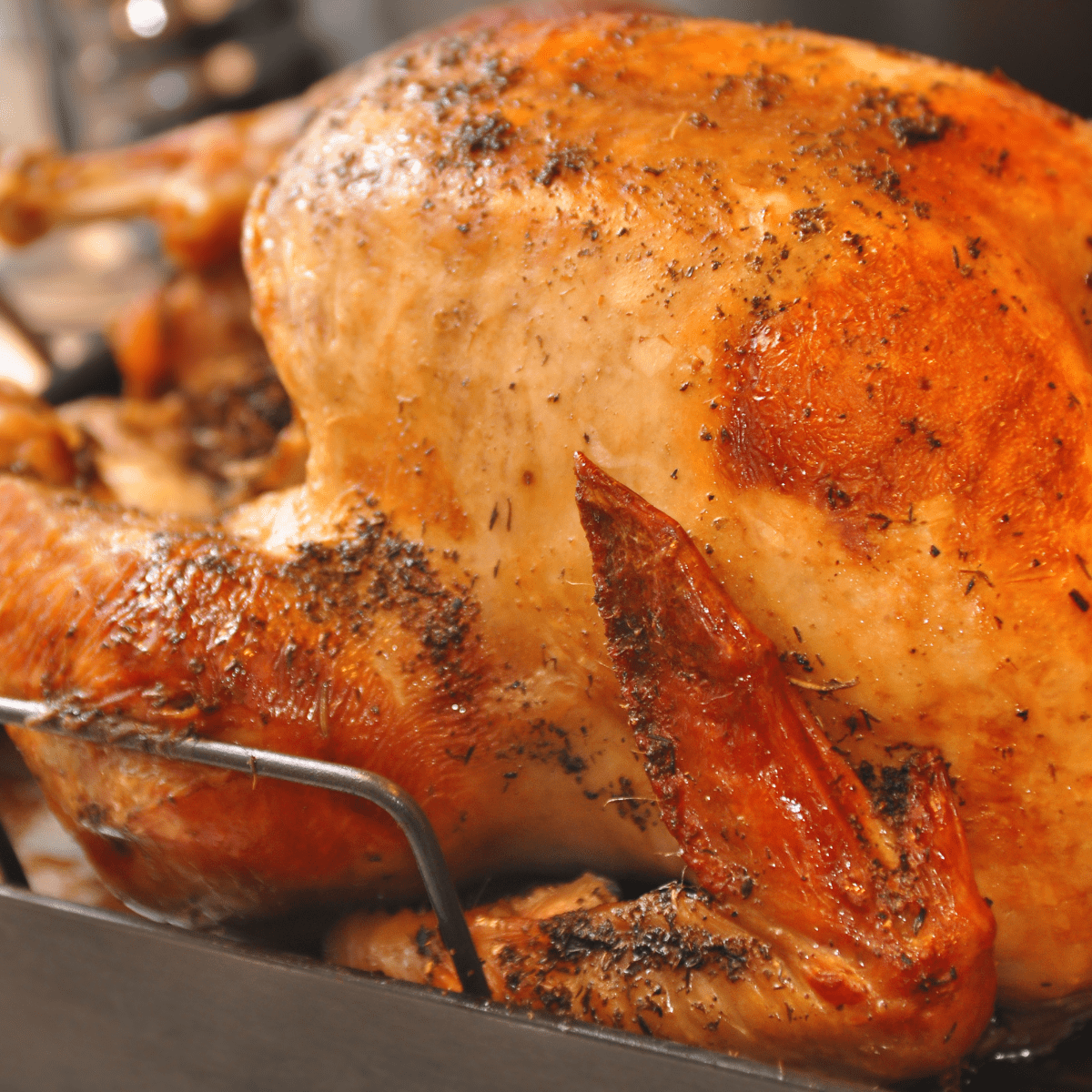
#5 Hummus or Beans
Beans have lots of good stuff going for them nutritionally, but they’re a vegan option if you need one. Try a hummus and veggie sandwich or even just offering a pita with veggies and hummus to dip as an alternative to sandwiches. I also like hummus with sesame seeds on top, or mashed pinto beans with flax seeds for tons of nutrition!
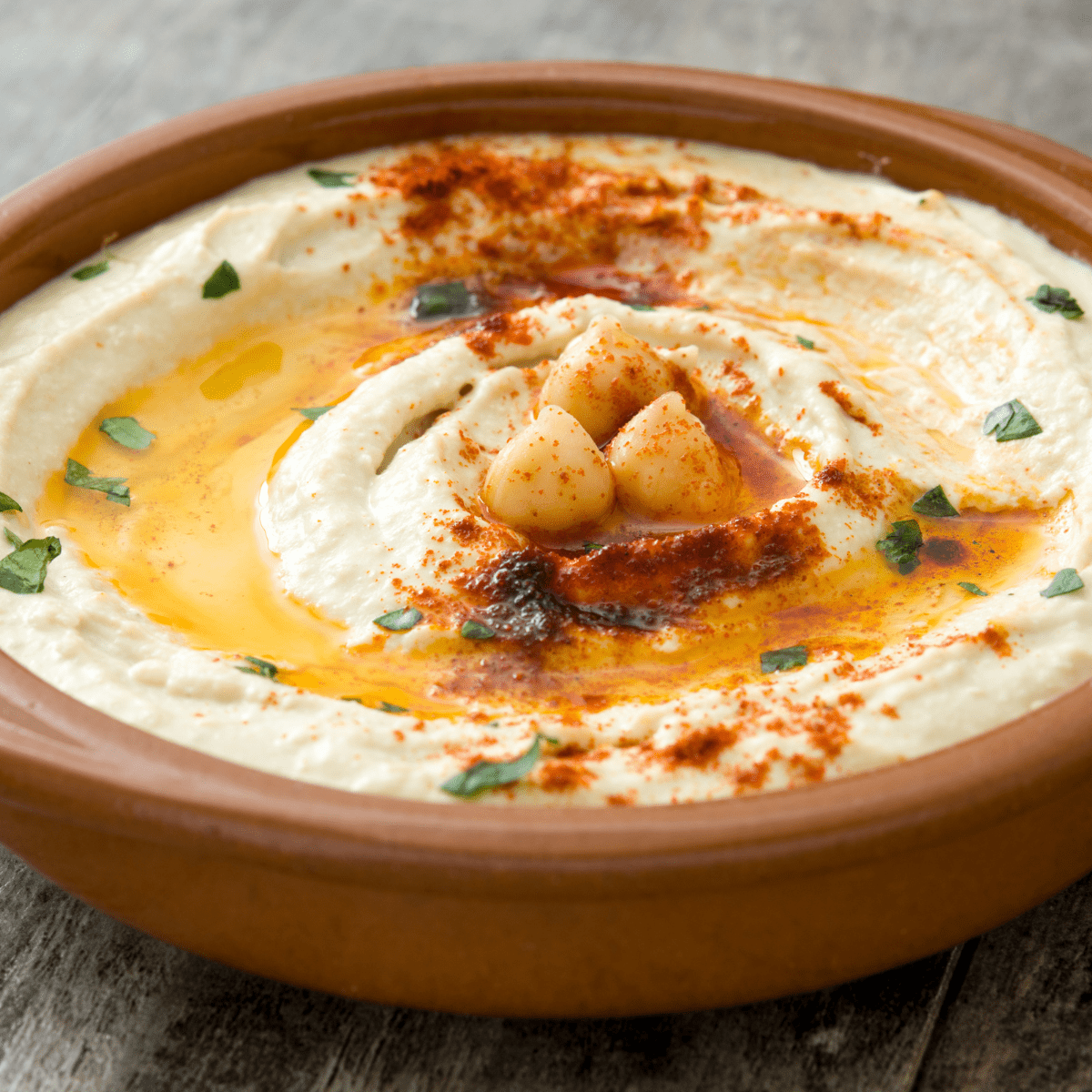
#6 Nut Butter
A classic! Peanut butter and jelly might be off the safe-food list for school, but you can try a nut-free option like sun butter or granola butter. Add mashed raspberries, jam, or jelly for a burst of flavor. (I like the Crofter’s brand I get at Costco!) Or, you could make my 5-Ingredient, No-Bake Nut Butter Bars!
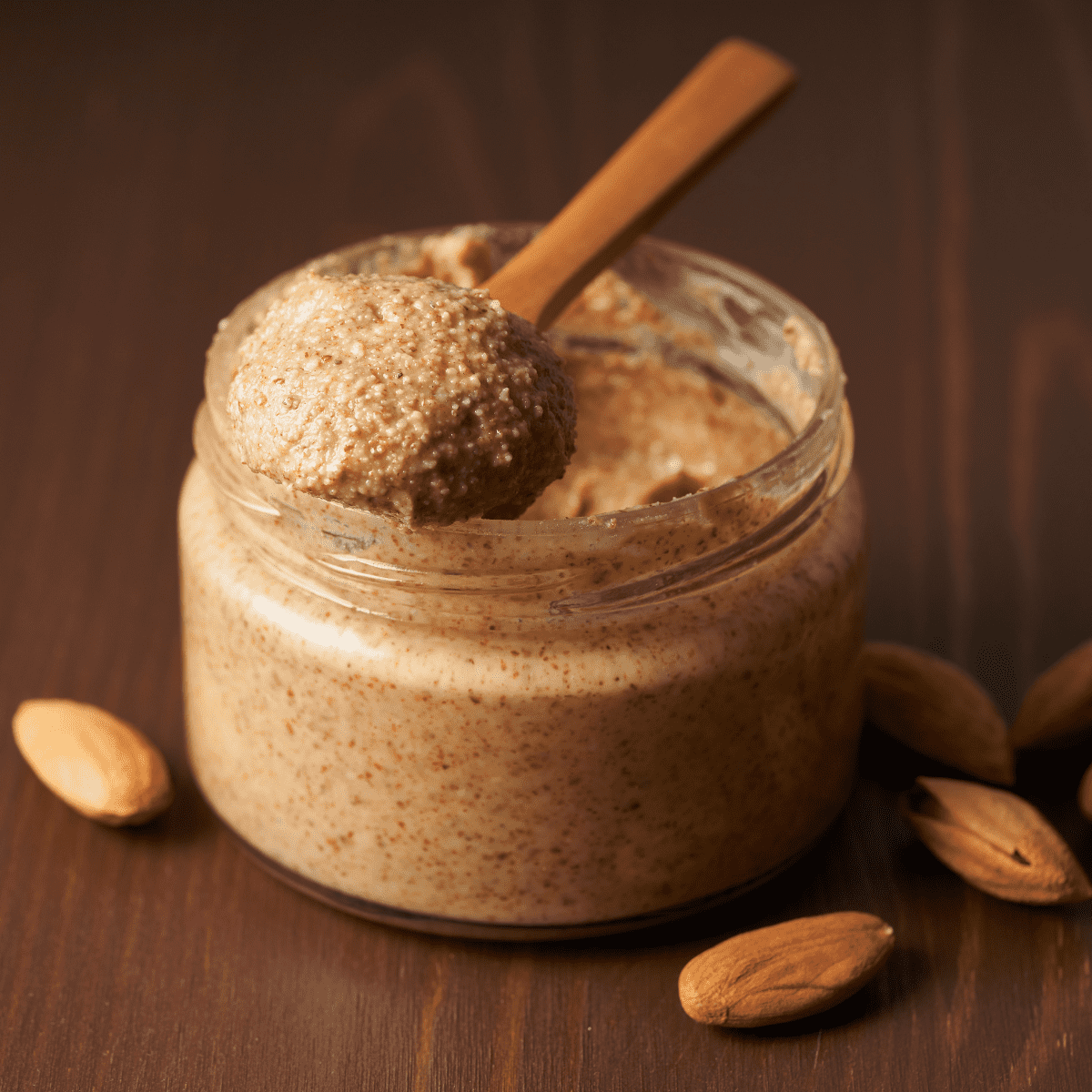
Lunches Without Lunch Meat: Inspo & Ideas
Want more lunch ideas? You know I got you!















I know this is an old post but I think it’s important to include that sunflower seed-based butters tend to be higher in heavy metal concentrations (especially lead) than peanut butter, so it would be best recommended in moderation.